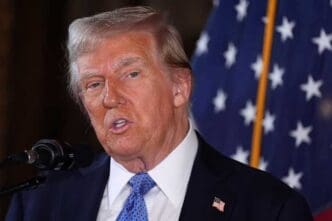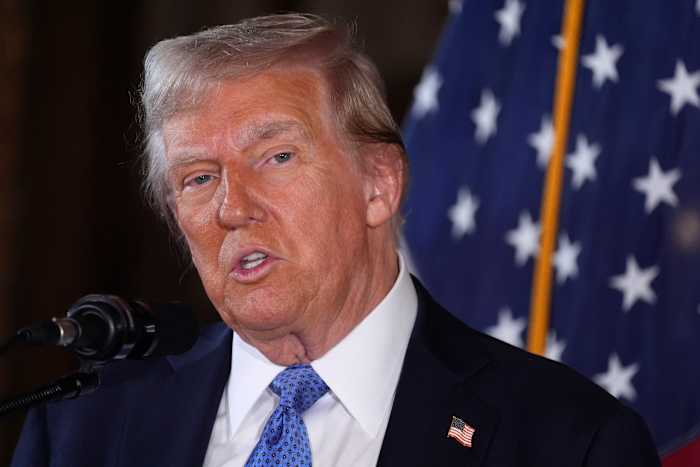In a decisive move that blindsided Washington’s budget negotiations, President-elect Donald Trump, with the outspoken support of Elon Musk, derailed what was poised to be a bipartisan budget agreement. This action has incited political chaos reminiscent of past congressional gridlocks.
President-elect Donald Trump firmly rejected the ongoing bipartisan budgetary negotiations, accusing the proposed measure of being overly generous to Democratic interests. Elon Musk, a key ally of Trump, intensified the situation by leveraging his social media platform to rally opposition against the bill, which he criticized for excessive spending. Musk’s posts, echoing sentiments to ‘stop the steal of your tax dollars,’ resonated with many Republicans and pushed Trump to take a firm stance against the agreement.
In a joint announcement with Vice President-elect JD Vance, Trump halted the legislative progress, advocating for renewed discussions that would include raising the debt ceiling under President Joe Biden’s tenure. This demand was framed as a strategic decision to force Democrats to negotiate the debt ceiling now, rather than later. Trump argued that failure to do so would be a betrayal of national interests.
The pushback against the bill has amplified Musk’s influence in the political arena, especially as he was designated by Trump to lead a task force focused on reducing governmental expenditures and regulations. Representative Andy Barr acknowledged the public’s reaction, noting the significant influx of calls he received from constituents aligning with Musk’s views.
Meanwhile, House Speaker Mike Johnson, who was instrumental in formulating the budget proposal, found himself undermined by Trump’s opposition. The discord within the Republican party threatens to replicate the leadership struggles that have previously stalled House operations. This development caught many lawmakers off guard, occurring during a period usually reserved for holiday celebrations.
The Biden administration voiced concerns over the risk of a government shutdown, with White House press secretary Karine Jean-Pierre urging Republicans to honor the bipartisan deal to prevent broad instability affecting American citizens’ livelihoods. Grover Norquist, a seasoned figure in budget negotiations, expressed apprehension about the absence of a definitive resolution plan, although he recognized Musk’s ability to draw public attention to fiscal matters.
Musk’s criticism of the budget bill, labeling it one of the ‘worst bills ever written,’ included inaccuracies, such as an unfounded claim about funding for a football stadium. Nevertheless, his advocacy was described by some, like Representative Dan Bishop, as a much-needed change in the political dynamics within Congress. Bishop celebrated Musk’s involvement as a long-awaited shift.
The opposition to the legislation underscores the complexities of governance and budgetary processes in Washington. Democratic leader Hakeem Jeffries warned that any deviation from the agreement would place the burden of consequences solely on Republicans.
Ultimately, Musk celebrated the outcome, describing it as a triumph for public sentiments and a positive day for the nation. This episode leaves the future of the budget negotiations uncertain, as it rekindles familiar political tensions within the government.
The rejection of the bipartisan budget deal by President-elect Trump, influenced by Musk’s vocal opposition, has once again thrust Washington into political turmoil. While some view this as a victory for public accountability, it underscores the ongoing challenges of navigating bipartisan agreements in a divided political landscape.
Source: News4jax








